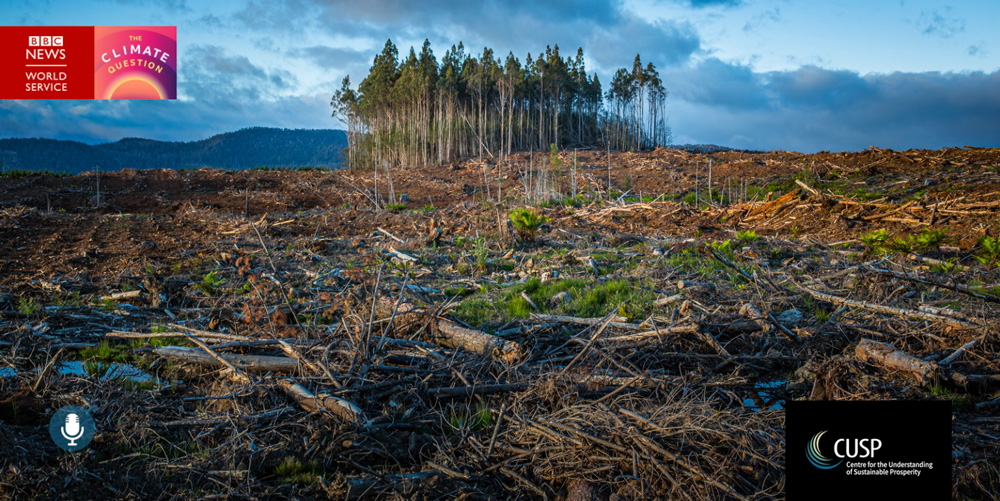BBC World Service’s The Climate Question discussing the implications and interdependencies of the GDP growth imperative

From the BBC programme’s website:
For nearly a century, governments around the world have measured the health of their economies by a single metric: GDP, or Gross Domestic Product. It measures a country’s economic growth, and over the years has become a shorthand for national progress; a rising GDP is generally understood to mean more people in work, more companies in business, living standards on the rise.
Yet, as experts have argued for decades, there is a lot that GDP leaves out. While it measures the value of all goods and services produced and consumed in an economy, it doesn’t account for nature, wellbeing, or planetary health. To GDP, a 100-year-old carbon capturing tree is worthless until its chopped down and sold as timber. Cleaning up after disasters, such as extreme weather events, improve GDP due to the increase in spending – even as people and planet suffer the consequences.
In an age of climate breakdown, many economists are arguing that our obsession with GDP is damaging the planet. So is it time to ditch GDP as a measure of progress and come up with a new metric that puts sustainability at its core?
Presenters Jordan Dunbar and Tanya Beckett are joined by Kate Raworth, Senior Associate, Oxford University, Tim Jackson, Professor of Sustainable Development, University of Surrey, Jayati Ghosh, Professor of Economics, University of Massachusetts, and Celestin Monga, Visiting professor of public policy at Harvard University.
Link
The full episode of ‘The Climate Question’ is available via BBC Sounds: https://www.bbc.co.uk/sounds/play/w3ct2drv
